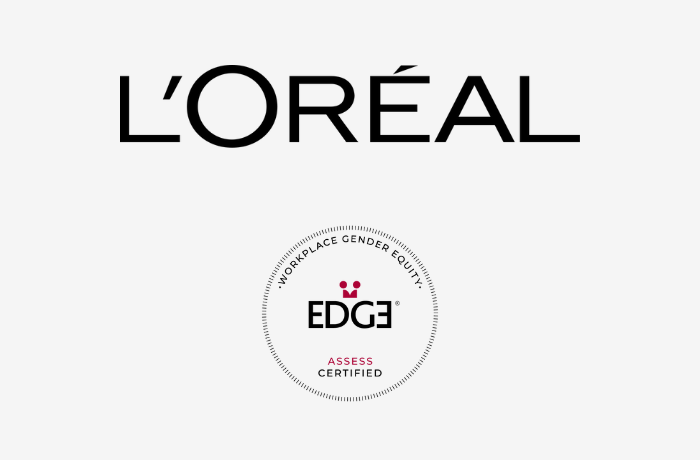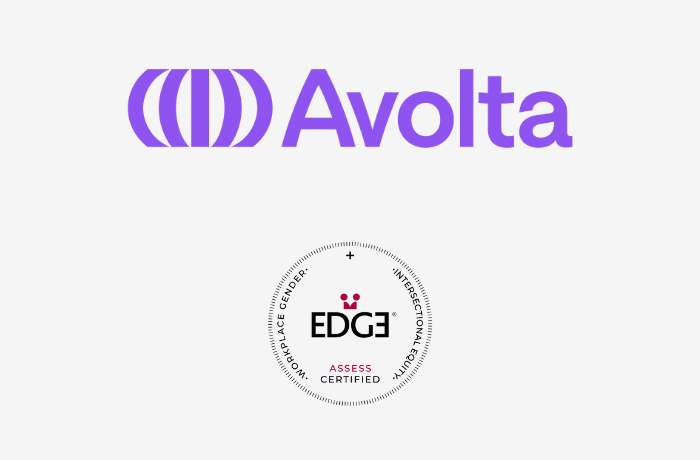We have updated EquiNations, our comprehensive overview of DE&I legislative frameworks across the 20 countries with the highest number of EDGE Certified organizations. As part of our bi-annual updates, we’ve reviewed our analysis to ensure it reflects recent shifts in DE&I legislation, providing a current and thorough understanding of the legal landscape. This edition also includes a special focus on the DE&I indicator “non-binary gender identity legal recognition,” emphasizing the importance of visibility and legal recognition for non-binary and gender-diverse individuals.
EquiNations
Explore DE&I regulations in 20 countries
Select a country from the dropdown menu to highlight our findings and read a summary of the standout metrics.
You can view the legend for each category by hovering or touching over a circle.

Our analysis covers the 20 countries with the highest number of current EDGE Certifications
For a detailed explanation of the DE&I indicators chosen in the EquiNations legislative overview, please refer to our original EquiNations Publication.
Key Updates and Upcoming Regulatory changes
Non-Binary Gender Identity Recognition
On June 21, 2024, Germany’s Self-Determination Act on gender markers was published in the German Federal Law Gazette. It will take effect on November 1, 2024[1], allowing German citizens to change their gender marker (female, male, diverse, or no gender entry[2]) and first name with a simple declaration, rather than needing a court decision.
In Vietnam, the Drafting Committee for the Gender Transition Law has published its Draft Law on Gender Transition online for public comment and held a consultation with members of the transgender community[3]. The draft law details the processes and procedures for individuals seeking legal gender recognition. The draft will be submitted to the National Assembly for review in October 2024.
Same Sex Marriage
Same-sex marriage has been legalized in Thailand, following the approval of a bill by King Maha Vajiralongkorn[4]. The bill ensures that same-sex couples receive equal rights in areas such as child adoption, healthcare consent, and inheritance[5]. The new law will enable same-sex couples to legally register their marriages starting in January 2025.
In Poland, a bill to introduce same-sex civil partnerships has been added to the government’s agenda[6],[7]. This initiative responds to a ruling by the European Court of Human Rights, which found that Poland violated Article 8 of the Convention for the Protection of Human Rights and Fundamental Freedoms, specifically the right to respect for family and private life[8].
Parental Leave
In Australia, the Paid Parental Leave scheme has undergone changes[9]. Starting on July 1, 2024, the total parental leave pay available to families increased to 22 weeks, or 110 days, based on a five-day work week[10]. Each year until 2026, an additional two weeks will be added to this payment[11]. The new scheme adopts a gender-neutral approach, replacing the terms “maternity” and “paternity” leave with “primary” and “secondary” carer. Under the revised scheme for couples, a portion of the parental leave pay will be allocated to each carer, with a maximum of 100 days for one parent[12]. Single parents will receive the full amount of parental leave pay.
Pay gap reporting legal requirement
While our “Pay gap reporting legal requirement” tracks gender pay reporting obligations, it is interesting to note that the United Kingdom is planning on introducing mandatory ethnicity and disability pay gap reporting[13]. In the UK, employers with 250 or more employees are required to report annually on their gender pay gap. This report must be published on the government’s gender pay gap reporting website as well as on the employer’s own website[14]. In addition to expanding the legal mandate for equal pay for equal work between men and women to include ethnic minorities and disabled individuals, the draft Equality (Race and Disability) Bill aims to broaden gender pay gap reporting. This will require employers with 250 or more employees to reveal pay gaps related to ethnicity and disability[15].
The Importance of Legal Recognition for Non-Binary Gender Identity
Following Germany’s recent milestone in fully recognizing non-binary gender identities, we turn our focus to this important DE&I indicator—one that many EquiNations countries still lack. Currently, only a few countries offer legal recognition to non-binary individuals:
- Australia: Allows non-binary individuals to select an “X” gender marker on passports[16].
- Canada: Provides an “X” marker on passports to denote an unspecified gender[17].
- India: Recognizes a third gender, often referred to as “hijra,” with the passport marker “O” for “Other”[18].
- Mexico: Non-binary citizens can choose an “X” gender marker instead of selecting male or female[19].
Additionally, Austria, Brazil, and Spain recognize intersex individuals at the federal level, while non-binary recognition exists in certain states within Brazil and the United States[20].
Despite growing visibility, non-binary people still face systemic barriers[21]. Many legal, medical, and social systems are not designed to recognize or accommodate transgender and non-binary identities, leading to ongoing discrimination and exclusion[22].
Recently, the Council of Europe Commissioner for Human Rights, Dunja Mijatović, released a report titled “Human rights and gender identity and expression” which outlines 15 recommendations for states to make meaningful improvements in the lives of transgender and non-binary people. One key recommendation calls for states to “adopt legislation which guarantees that trans people who want it have access to quick, transparent and accessible administrative procedures for legal gender recognition based on self-determination”[23].
While governments hold primary responsibility for ensuring fairness, respect, and dignity for transgender and non-binary individuals, for example through national non-discrimination legislation and legal gender recognition, organizations also play a pivotal role. Organizations committed to gender and intersectional equity are encouraged ensure that their policies and practices are inclusive, and collect and record disaggregated data on the experiences of transgender and non-binary employees. Providing non-binary employees with the autonomy to self-identify is a critical aspect of fostering an inclusive workplace.
The Council of Europe Commissioner also urges organizations to actively involve non-binary individuals in shaping their DE&I strategies[24]. By consulting non-binary employees and advocacy groups, organizations can create policies and practices that genuinely reflect the needs of all gender identities, resulting in a more inclusive and supportive environment.
Ultimately, organizations have a unique opportunity to drive progress toward equality for non-binary individuals. Creating workplaces where everyone, regardless of gender identity, can thrive is not only a compliance issue in some regions, but also a reflection of an organization’s commitment to core values like fairness and innovation.
EDGEplus Certification offers a tailored assessment that analyzes gender in intersection with other dimensions of diversity, including gender identity. Through a holistic approach EDGEplus can help organizations gain a deeper understanding of the nuanced challenges their workforce faces and empowers organizations to make evidence-based decisions that foster a truly inclusive and equitable workplace. Learn more about EDGEplus Certification here.
[1] https://www.germany.info/us-en/service/04-FamilyMatters/self-determination/2671874
[2] https://www.loc.gov/item/global-legal-monitor/2024-07-09/germany-new-self-id-act-for-transgender-intersex-and-nonbinary-individuals-enacted/
[3] https://database.ilga.org/vietnam-lgbti
[4] https://time.com/7024193/thailand-same-sex-marriage-2025/
[5] https://www.bbc.com/news/articles/cn03we6zpk1o
[6] https://www.gov.pl/web/premier/projekt-ustawy-o-rejestrowanych-zwiazkach-partnerskich
[7] https://www.fidh.org/en/region/europe-central-asia/poland/joint-statement-welcoming-european-court-judgement-on-poland-s
[8] https://queer.pl/news/207168/zwiazki-partnerskie-coraz-blizej-projekt-ustawy-wkrotce-trafi-do-konsultacji
[9] https://www.servicesaustralia.gov.au/changes-if-you-get-family-payments
[10] https://ministers.pmc.gov.au/gallagher/2024/more-paid-parental-leave-australian-families-ever
[11] https://www.fairwork.gov.au/tools-and-resources/fact-sheets/minimum-workplace-entitlements/parental-leave-and-related-entitlements
[12] https://www.facebook.com/ServicesAustralia/videos/parental-leave-pay-is-now-22-weeksif-your-child-is-born-or-comes-into-your-care-/1583298192604742/
[13] https://www.bloomberg.com/news/articles/2024-07-17/ethnicity-pay-gap-uk-companies-must-disclose-data
[14] https://trusaic.com/blog/uk-poised-to-expand-pay-gap-reporting-requirements-to-include-race/
[15] https://www.pwc.co.uk/services/human-resource-services/insights/pay-gap-reporting-and-equal-pay.html
[16] https://www.equaldex.com/region/australia
[17] https://www.equaldex.com/region/canada
[18] https://www.equaldex.com/region/india
[19] https://www.equaldex.com/region/mexico
[20] https://www.equaldex.com/
[21] https://www.coe.int/et/web/commissioner/-/human-rights-of-trans-people-increased-visibility-and-legal-recognition-contrast-with-lived-experience-of-discrimination-violence
[22] https://ourworldindata.org/progress-lgbt-rights
[23] https://rm.coe.int/issue-paper-on-human-rights-and-gender-identity-and-expression-by-dunj/1680aed541
[24] https://rm.coe.int/issue-paper-on-human-rights-and-gender-identity-and-expression-by-dunj/1680aed541



